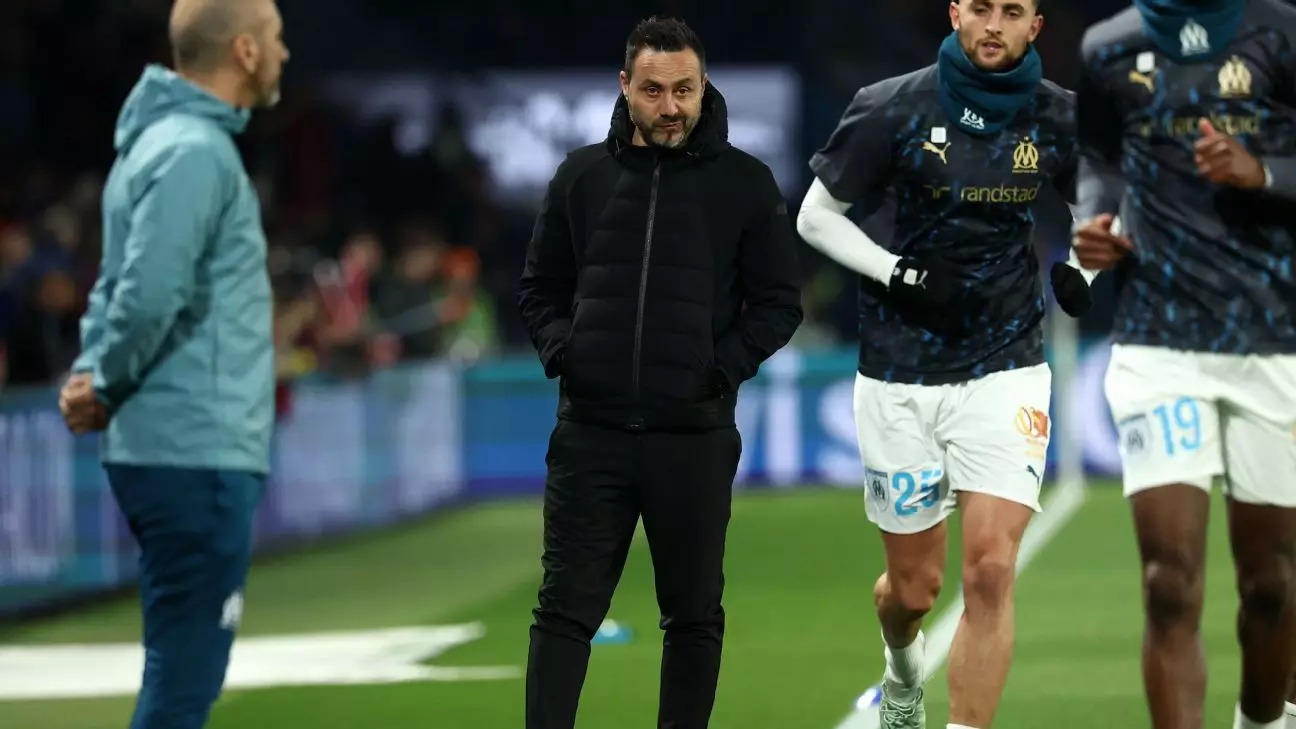Football is often celebrated for its display of talent, passion, and unity, yet beneath the glamour lies a fragile veneer susceptible to bursts of chaos. Recent events involving Marseille’s players highlight how quickly this sport’s veneer can crack, revealing raw human emotions that threaten the integrity of the game. The violent confrontation between Adrien Rabiot and Jonathan Rowe is a stark reminder that beneath the surface of professionalism, tempers can flare uncontrollably. What was supposed to be a routine post-match reflection spiraled into a scene resembling an unruly pub brawl, exposing the porous boundary between competitive spirit and destructive aggression. Such incidents reveal a fundamental flaw in how clubs manage internal discipline, raising questions about the underlying culture that fosters these explosive eruptions.
Leadership’s Role in Controlling Chaos
The reactions from Marseille’s leadership underscore a failure to prevent such incidents from escalating. Club president Pablo Longoria’s description of the altercation as “extremely violent, something I’ve never encountered before” signals a disturbing gap in squad oversight. While swift decisions to transfer-list both players may seem decisive, they do little to address the root causes—fanatical rivalry, unregulated emotions, and insufficient conflict management protocols. Head coach Roberto De Zerbi’s candid comparison to an “English pub fight” is provocative but also revelatory; it underscores the need for a structured approach to player discipline. His choice to isolate the players temporarily indicates a recognition of their potential threat to team cohesion, but it also demands reflection on how clubs can better foster emotional resilience amid high-pressure environments.
The Culture of Aggression in Modern Football
This incident presents an opportunity to critique broader issues troubling contemporary football: the normalization of aggression and the glorification of fiery passion as virtues. Fans and media often romanticize intense rivalries, but when they spill into violence, it tarnishes the sport’s reputation. Marseille’s decision to publicly list Rabiot and Rowe exemplifies a zero-tolerance stance, yet it also invites scrutiny—are clubs truly committed to nurturing professionalism, or merely reacting to sensationalism? Moreover, the event exposes a disciplinary disconnect; rather than preventative measures, clubs seem reactive, responding only after chaos erupts. This reactive approach risks normalizing hostility rather than fostering a culture where players channel competitive fervor positively.
Lessons for Future Generations of Players and Managers
Ultimately, the Marseille dust-up accentuates the importance of leadership that values mental strength as much as technical skill. Coaches must emphasize emotional intelligence alongside tactical discipline, shaping players who can handle pressure without succumbing to destructive impulses. Football’s governing bodies also bear responsibility—implementing rigorous conflict management training might prevent future incidents from escalating into violent clashes. As fans and stakeholders, we must also reflect on what stories we elevate. The allure of drama and aggression often overshadows the game’s true artistry, fostering environments where violence, rather than sportsmanship, becomes the headline. Only through accountability and a concerted effort to instill professionalism can football restore its reputation and ensure that passion remains a source of inspiration—not destruction.

